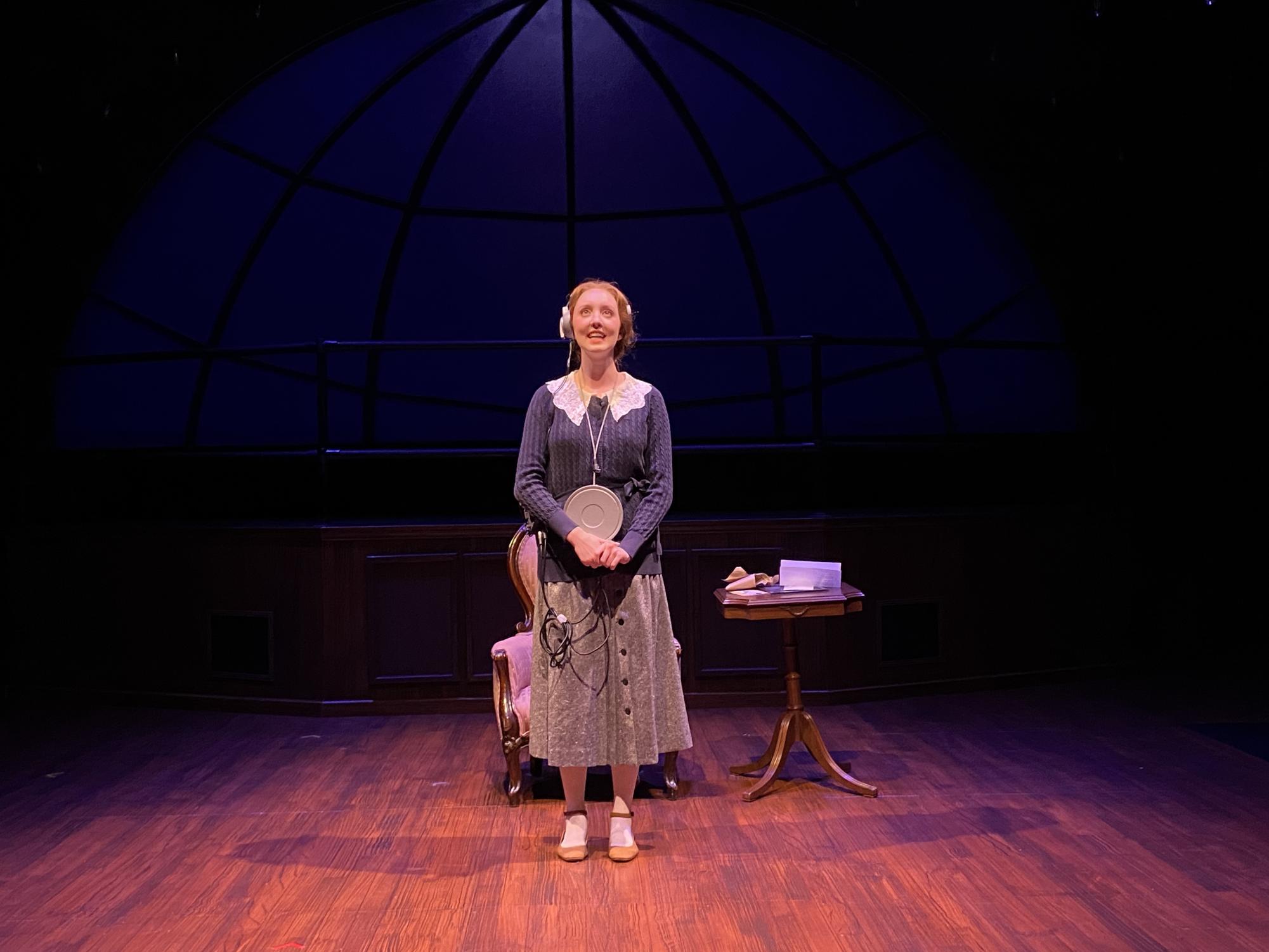This past weekend, the Case Western Reserve University Department of Theater presented “Silent Sky,” a production depicting the life and research of astronomer Henrietta Leavitt. It was directed by Lisa O’Brien and David Vegh. Leavitt, who lived and worked in the early 20th century, most notably discovered how to determine the size of the universe by measuring the distance between stars. The production focuses on Leavitt’s time working at the Harvard College Observatory in Cambridge, Massachusetts. After the opening scene of Leavitt accepting a job offer from Harvard, the play covers roughly the next 20 years of her life. There are four other characters in the play: Henrietta’s sister Margaret Leavitt (Madeline Golya), Henrietta’s supervisor Peter Shaw (Ethan Teel) and Annie Cannon (Carrena Spann) and Williamina Fleming (Abigail Gilman), who are Henrietta’s co-workers. Much of the play focuses on Henrietta’s (Olivia Minner) attempts to break into the male-dominated astronomy industry.
When she initially arrives at Harvard, Henrietta is shocked and angry to learn that much of her job consists of cataloging different stars and acting as a human computer. She’s most disappointed to learn that she will not be able to use the refracting telescope, which she believed she would have access to for research purposes. However, with the support and encouragement of Annie and Williamina, her two coworkers, Henrietta is convinced to stay in the position. Henrietta is determined to succeed and eventually begins to notice patterns in the pulsations of certain types of stars. She continues to record these stars for years but eventually grows dissatisfied with her progress and her failure to recognize a further overarching pattern. She questions if her work will ever amount to anything, feeling as though she’s just “counting grass.”
Meanwhile, Henrietta has become so consumed by her job that any semblance she ever possessed of a work-life balance has been flung out the window. She sleeps over in the lab most nights and has failed to maintain a relationship with her sister Margaret, who has since started her own family. However, when news of her father’s recent stroke arrives, Henrietta drops everything in Cambridge—including a potential budding romance with Peter Shaw—to return home and help in any way she can. She continues to work on her identification of stars and even earns the nickname “star-finding fiend” for her endeavors. While at home, she has a groundbreaking light-bulb moment when she realizes that the pulsations in the stars signal their distance from Earth. Most importantly, this helps to support the idea of different universes outside of the Milky Way.
The following—and significantly shorter—second act mostly consists of Henrietta becoming frustrated with the use of her work by other scientists without her consent and the reparation of her relationship with her sister. In the end, Henrietta dies an unfortunate early death from an unnamed disease and receives some, but not nearly enough, recognition for her scientific contributions. In the closing scene of the play, however, which is reminiscent of a “where are they now” montage from the end of some early 2000s movie, an important message is solidified: An individual’s story does not end with their death. Henrietta finally gained well-deserved recognition, but only in the years after her passing, almost in the same vein as many famous modern artists. One has to wonder, however, whether that recognition was only delayed because of her gender. If Henrietta had been a man, would things have been the same? In that case, then, there wouldn’t have been a play, as Henrietta wouldn’t have had any challenges to overcome.
Henrietta’s story is one of persistence, determination and outright grit. As Olivia Minner, who played Henrietta, stated: “It’s a beautiful show … and I hope that it touched your heart and left you feeling better about the world.” Today, women in academia have come a long way. It is important to collectively give credit to pioneers such as Henrietta Leavitt, whose legacy continues to develop even to this day.


